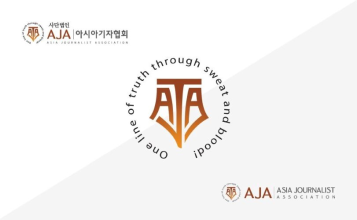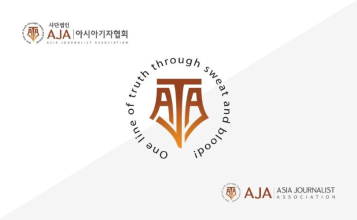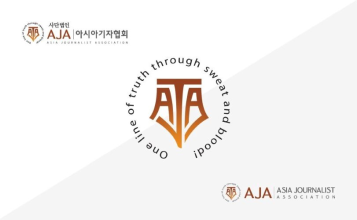AJA Newsbites – November 27, 2025

AJA Newsbites is a curated roundup of major news and developments from across Asia, brought to you by members of Asia Journalist Association (AJA)
Lee Sang-ki, THE AsiaN, Korea
As the presidential office prepares to move back from Yongsan to the former Blue House, concerns are growing that media access may once again be severely restricted. Unlike Japan’s prime minister’s residence—designed for constant press monitoring—the Blue House confines reporters to the distant Chunchugwan, effectively creating an isolation zone. Memories remain of President Yoon’s early “doorstep briefings,” which were halted after a dispute with the media, weakening communication with the press.
Analysts warn that without close-range coverage, the Blue House could revert to a “royal palace,” shielding the president from public scrutiny. Allowing limited internal access or at least enabling reporters to cover the president’s daily commute is viewed as essential to prevent a return to an imperial presidency.
Chhay Sophal, Cambodia News Online, Cambodia
Cambodia’s National Police have received five fire trucks, two ambulances, 100 sets of firefighting uniforms, and 20,000 sets of chemical protective suits from the government of the Republic of Korea through the GO&DO organization.
The valuable equipment provided on Tuesday will support more effective and timely firefighting operations, helping rescue citizens during fire incidents and contributing to the protection of lives, property, the environment, security, public order, and social safety, said General Sar Thet, Commissioner-General of the National Police.
According to Lieutenant General Neth Vantha, Director of the Fire Prevention and Rescue Department of the National Police, there were 873 fire accidents in the first nine months of 2025—a decrease of 219 cases compared to the same period in 2024. The causes were attributed to electricity (42.26%), the use of fire (39.18%), and other factors (18.56%). A total of 481 houses and 98 stores were damaged, while 14 people died and 43 were injured.
Bob Iskandar, Indonesia Global News, Indonesia
The government’s plan to strengthen the Indonesian National Armed Forces (TNI) by adding 150 battalions per year, according to Defense Minister Sjafrie Sjamsoeddin, is not driven by territorial ambitions but is solely aimed at maintaining territorial integrity and safeguarding national security interests. In Indonesia, a battalion consists of 500–1,300 soldiers divided into three to six companies.
The increase in the number of battalions, the Minister explained, is part of Military Operations Other Than War (MOOTW), which include the protection of strategic installations, particularly oil refineries owned by Pertamina. Meanwhile, the addition of personnel is planned to be carried out in three provinces considered the National Center of Gravity.
These provinces are Jakarta, Aceh, and Papua. In 2025, 150 battalions—referred to as Territorial Infantry Battalions—have already been formed. The requirement for 750 battalions over five years is part of building long-term defense capabilities under the Optimum Essential Force (OEF) concept.
Kuban Abdymen, Centralasianlight, Kyrgyzstan
In Bishkek, at the “Yntymak Ordo” residence, Kyrgyz President Sadyr Japarov and Russian President Vladimir Putin concluded their talks as part of Putin’s state visit. The leaders discussed a wide range of bilateral cooperation issues and gave a positive assessment of engagement at all levels.
President Japarov emphasized that nearly a quarter of Kyrgyzstan’s foreign trade is with Russia, with the goal of reaching $5 billion in bilateral trade in the coming years. Russian investments in Kyrgyzstan exceeded $110 million in the first six months of 2025, and more than 1,800 companies with Russian investor participation are currently operating in the country.
Several key documents were signed, including agreements on strategic planning, construction of the Kyrgyz-Russian Slavic University (KRSPU) campus, cooperation in healthcare and cardiology, military-technical cooperation, and collaboration between Kyrgyz Pochtasy and Russian Post. The leaders also highlighted the work of the Russian-Kyrgyz Development Fund, which has invested over $1 billion in more than 3,500 projects.
President Putin announced preferential fuel supplies to Kyrgyzstan, reaffirmed his commitment to deepening Eurasian Economic Union (EAEU) integration, underscored the role of the Russian military base in ensuring regional security, and pledged continued support for the Russian language in the country.
Pooneh Nedai, Shokaran Magazine, Iran
In a meeting in Islamabad, Iran’s National Security Council Secretary Ali Larijani told Pakistan’s Prime Minister Shehbaz Sharif that Iran is ready to connect Pakistan to the International North–South Transport Corridor. He said the link would create major opportunities for economic and transit cooperation. Both sides emphasized their strong desire to expand trade and investment. Sharif said that reaching ten billion dollars in bilateral trade is achievable and that Pakistan is ready to deepen cooperation in all areas. They also highlighted the importance of regional coordination and improved transit infrastructure, including the reconstruction of the Islamabad–Tehran–Istanbul railway to enhance efficiency and support mutual growth.
ⓒ THE AsiaN | All rights reserved
This content is copyrighted by THE AsiaN. If you wish to share it, please do so without modifying the original text and always include the source link. Unauthorized editing or sharing without proper attribution may result in legal consequences.




